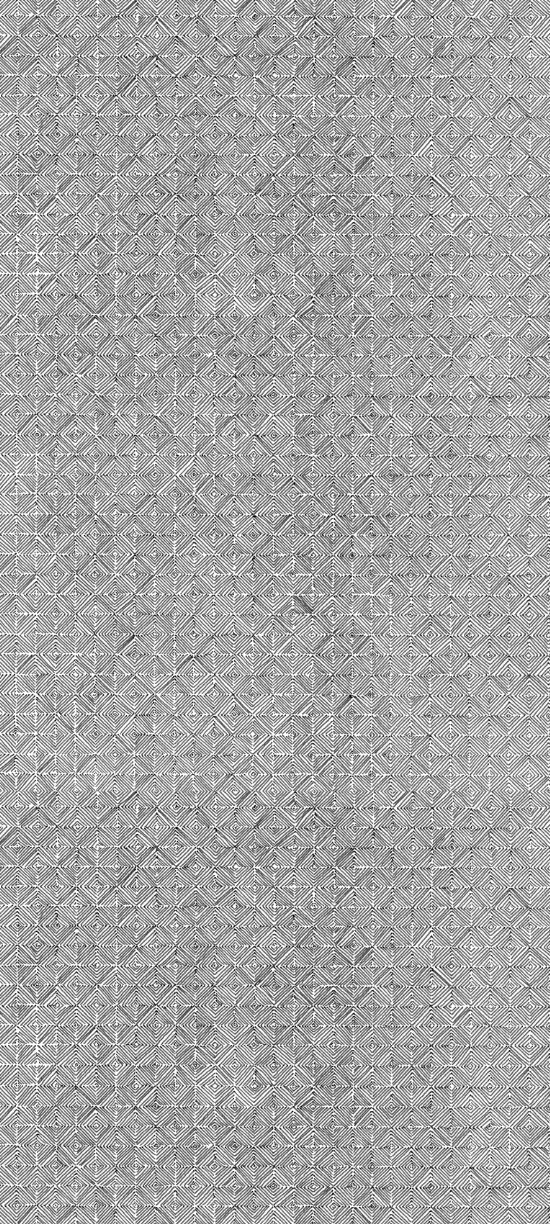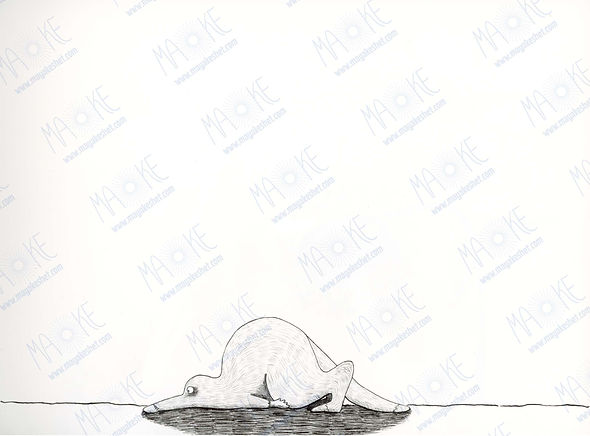
TM
.jpg)
“Not All Those Who Wander Are Lost”
J.R.R. Tolkien wrote these words, and they seem to be relevant now more than ever.
In this day and age, “those who wander” are far from being those our society casts as role models. Slowing down is frowned upon. Choosing to do something without expecting some immediate, or at the very least predictable, results or gains, is considered pointless and deemed a waste of time.
While we may allow ourselves some free time, we are expected to plan ahead and use this limited time efficiently, preferably on an activity that looks good on camera.
We are socially celebrated and rewarded when we travel to remote and exotic locations, but are much less encouraged to let ourselves simply wander aimlessly, even if only for a little while.
As an entrepreneur, or a “solopreneur” (I recently discovered there is such a term), I am familiar with seeing the world through the don’t-waste-any-moment lens.
After all, “It’s all about your mindset.” Setting goals is key here, and so is constantly looking for ways to improve your productivity. It is imperative to learn from outliers and to be mindful of our habits so we can work to change some and add others as we strive to become more efficient.
It is vital we manage our priorities and our schedule at all times, while avoiding irrational behavior and thinking biases as much as possible (or at least making sure we educate ourselves about them), so we can, hopefully, make better decisions.
In order to keep up, we need to constantly add to our skillset, working on skills such as public speaking, networking, problem solving, etc. Therefore, we have to remain focused and ensure we are always learning and advancing, carefully choosing the right books and articles to read so we don’t waste any time.
There is always more to learn, and we can live our whole life looking through this lens.

I enjoy this part of what I do, and am fully committed to my company. Building solid foundations for it and seeing it grow are a big part of what motivates me.
And so, I devote time and attention to the effort to constantly learn and improve. I have a clear vision for my company, and a very big mission to accomplish. I consider myself lucky because of this. To me, the business world is a fascinating and exciting playground, filled with opportunities and pretty much endless possibilities.
But you can also see the world through another kind of lens. Some refer to it as “beating on your craft.” There is truth in the expression. It is the lifelong journey of those who dedicate themselves to creating or expressing something that is meant to bring joy, beauty, and value to others.
For the most part, creative work is usually done quietly. You experiment, fail, improve, and start over. Success is elusive in this realm, and is very different from success in business, but the work is by no means less demanding. Sometimes, it takes everything you have to get a fraction of it done.
Now and then you get that fleeting “aha” moment, and the world just stops. It’s all worth it for those moments. Then you start working toward the next one.
If you’ve ever stopped for a minute to think about it, you may have realized you never chose to do this work. In a way it chose you, or maybe it’s always been there in your life. You already danced, or drew, or started doing “it,” whatever “it” may be for you, when you were a child.
If you’re an author, a musician, a photographer, or a poet who is fully devoted to your creative work, you understand exactly how demanding it can be.
So do comic book artists, illustrators, dancers, scientists, chefs, designers, carpenters, and anyone else who is dedicating the few short and precious decades we have in our lifetime to create, or rather to continuously strive to express, something meaningful through their work.
Personally, I find myself slipping into “Alice in Wonderland white rabbit mode” more often than I’d like to admit. I have a few children’s books, as well as other projects, In different stages of the work process at any given time. I am enthusiastic about all of them, and they all demand time and attention. They each require I do research, learn a new skill, or practice using materials or tools I haven’t used before.
Whether it’s a new animation, a children’s book, or anything else I'm working on, there is a process I have to go through patiently and diligently: thumbnails, sketches, frames, drafts, testing, penciling, inking, and the list goes on.
There is always more work to be done, much more to learn, and a lot of room for improvement. The key is to immerse myself in it and stay focused so I can best serve the work in front of me, whatever it takes.
We each have our own creative process, but I would assume any creative work demands we give it our full attention, and at some point or other in the process, we also give it everything else we have, more or less.
I love my work and am grateful to be able to do what I do.

I’m not sure it’s possible to do creative work without taking it personally. Fear and self-doubt are always lurking in the background, ready to creep up on you if you let them. Somehow, mistakes and failures just feel more serious when you’re working on an artistic project.
Ed Helmes summed up the solution very well: “So long as your desire to explore is greater than your desire not to screw up, you’re on the right track.” Easier said than done at times, yes. But true.
Failures and mistakes are part of the process, and it is impossible to avoid them completely.
Sometimes, they even turn out to be the very thing that makes our end result better.
And almost always, we learn something from painful failures or mistakes, and do better moving forward, which is pretty much what we are constantly working to achieve.
Fear and doubt may take many forms, such as “what if no one likes it?”. We simply have to practice ignoring them at all costs. Never ever give them access to your work. They will ruin it.
We must stay loyal to the work and what it wants to be. That is the only way to ever do something that’s worth anything.
Wanting others to like us is natural and normal. When we’re working on something that seems to contain an innate part of our true self, people liking our work (or not) may seem significant. That’s OK, as long as we stay true to our process. We have to trust the process. We just have to do our work, and then let it find its own way in the world.
Let others decide for themselves what interests them and what they like.
And what if we do create something that no one likes? Well, that’s OK, too. It might hurt our ego, but nothing more, really. Losing our integrity by trying to come up with a crowd pleaser, on the other hand, would be a lot harder to live with.
If you’re a beginner, or are considering studying or trying some type of creative work, don’t let any of what I’ve said scare you. Just go ahead and start. Paint, sing, take a photo, write a poem. As Zig Zagler said: “You don’t have to be great to start, but you have to start to be great.” So go ahead and join us. When it comes right down to it, we’re all just getting started. And with each new project, we start again.

Miss Fear on a rainy Sunday morning. Reading Jane Austen, what else?
There’s another challenge we have to contend with. Regardless of the specific type (or types) of creative work we’re doing, we all face the trap of our work starting to feel too much like… well, work. Chances are that if we let this happen it might not damage the work in terms of quantity, but the quality of what we come up with will deteriorate over time. This can happen when we’re in a rush to deliver artwork to a client, when we’re facing our own deadline, or simply when we’ve pushed ourselves too hard for too long.
If you happen to be like me and do most of your creative work with a specific goal in mind, such as writing or illustrating a children’s book, and if, like me, you tend to be a bit hard on yourself throughout the process, then, like me, you may need to be extra cautious not to fall into the trap of overworking to the point that both you yourself and the quality of your work suffer.
The solution is there for us. We have to keep Tolkien’s words in mind and let go every once in a while, allowing ourselves to just wander around in the lands of what we love to do. Let me give you an example.
Every once in a while I find it extremely important to give myself some free drawing time, with no particular goal in mind. I just let the juices flow and the child I once was run wild.
I draw without knowing what the final product will be used for in the future, or if it will ever be used at all. It doesn’t have to be “good” or tell a story. It doesn’t even have to make sense. I don’t do research for these drawings, and usually use tools and materials I’m familiar with and feel comfortable with. Sometimes, the results find their way into my work later on down the road in unexpected ways.
When I notice I haven’t done this for too long, I make it a priority and make sure to give myself the time to just draw for fun.
Personally, I find setting my projects aside every once in a while makes me come back to them more motivated and efficient, and with a new perspective. I feel refreshed and ready to start working on my next creative task.
Counterintuitively, perhaps, I find that allowing myself to wander protects me from getting lost.
Try it, and you’ll see that time disappears and the world steps aside to let you through.
I’ve added some of the drawings I created with no specific goal in mind to this blog. I’m not sure where else they might belong, but I feel they belong here.
Thank you for reading this. I wish you joyful wandering.

© 2024 by Maya Keshet . Read our terms of use and privacy policy